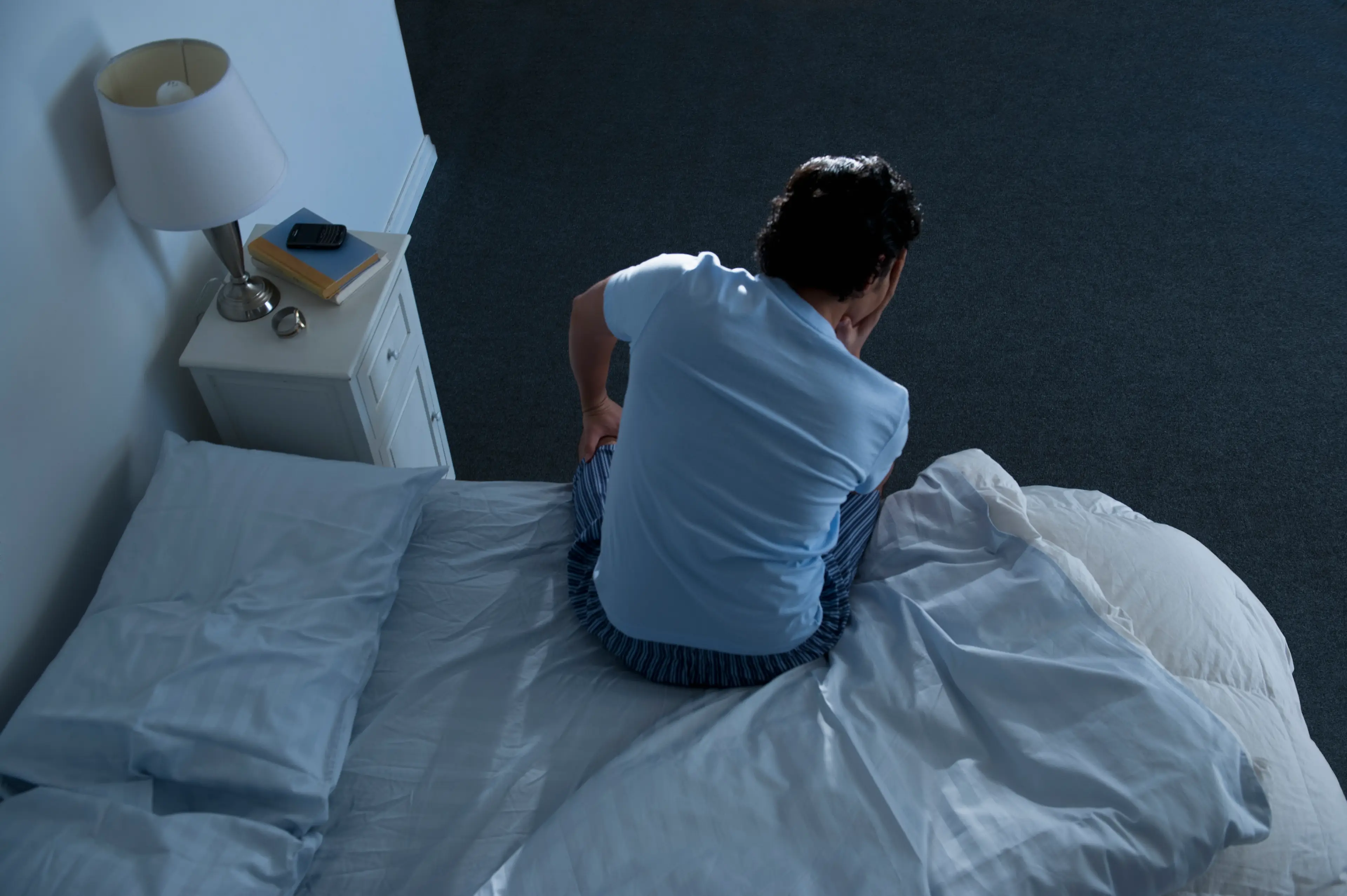
It turns out that jolting awake at around the same time each night can be a direct result of an issue most of us will experience a lot in life.
The real question is what can you be doing to try and help prevent the nightly wake-up panics where your mind ends up whirring and bringing up something you said in high school to someone who probably can't even remember your name, let alone what you said.
What happens to your body
As per The Conversation, psychology researcher Greg Murray explained that when you wake up at the same time in the middle of the night it's typically around 3-4:00am.
Why? Well, Murray revealed: "Our neurobiology reaches a turning point around 3 or 4am. Core body temperature starts to rise, sleep drive is reducing (because we’ve had a chunk of sleep), secretion of melatonin (the sleep hormone) has peaked."
Advert
There's another key factor at play here too - with levels of cortisol 'increasing as the body prepares to launch us into the day'.
And it's whether this cortisol leads you to fully waking up every night which can be the issue.

What it means
Cleveland Clinic explains: "Cortisol is a steroid hormone that your adrenal glands, the endocrine glands on top of your kidneys, produce and release.
"Cortisol affects several aspects of your body and mainly helps regulate your body's response to stress."
Alongside having many other roles, Cleveland Clinic states that cortisol contributes to you feeling on 'high alert' and 'triggers the release of glucose (sugar) from your liver for fast energy during times of stress'.
So, if you're currently experiencing more stress than normal, you may have a higher amount of cortisol released during this phase of the night and it may end up waking you up.
Murray revealed we 'actually wake up many times each night' however, 'when sleep is going well for us, we are simply unaware of these awakenings but add a bit of stress and there is a good chance that waking will become a fully self-aware state'.
And people are flooding to social media in awe of the revelation.

One Twitter user wrote: "Oh I didn't know this. I just thought I had insomnia or something."
Another said: "Reading this at 4:30 am, having woken up at 3 am."
A third commented: "Anxiety will have you waking up hours before you need to, sleep totally disrupted, because you feel like you’re meant to be doing something dangerously important. You’ll be running on fumes all day, knowing you’re one problem away from a meltdown."
Thankfully, there are certain things you can do to try and improve your sleep quality.

What can help
Winding down before bed - yes, that means putting away your phone - such as reading a book or listening to a podcast can help.
Oh, and don't even think about having caffeine anywhere near your bedtime and it's good to try and eat several hours before too so that you're not digesting while trying to catch some z's.
And should you find your mind racing at 3-4:00am? Well, you could try some meditation or picking up a book again to try and distract and tire your mind out.
Topics: Sleep, Health, Mental Health